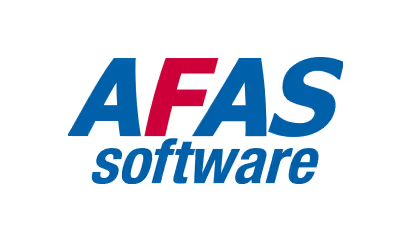What is RPA?
In 2 minutes and 21 seconds. Exactly.
In 2 minutes and 21 seconds. Exactly.
RPA is the abbreviation for the term Robotic Process Automation. It is not a brand name, but a collective term for the technology of automating administrative processes through digital "robots.
Roboticprocess Automation, or RPA for short, is an application of technology, which uses logic and structured inputs, aimed at automating administrative business processes. Using RPA tools, a company can configure software or a "robot" to capture and interpret applications to process a transaction, manipulate data, trigger responses and communicate with other digital systems or users. RPA scenarios range from something as simple as generating an automated response to an e-mail to deploying thousands of bots, each programmed to automate tasks in an enterprise system.
The term RPA was coined in 2012 by Phil Fersht, founder and principal analyst at HFS Research. The technology plodded on until about 2018 when it exploded in popularity as companies undertook digital transformation and improved RPA platform capabilities. However, in recent years it was only affordable for large multinational companies. This is now changing with companies like VionA offering RPA as a service.
RPA allows organizations to reduce personnel costs and human error. In addition, RPA robots are cheaper and faster to implement than heavy links between systems. See all the benefits of RPA or request an RPA Business Scan.
RPA is not the best solution for every situation. There are situations for which other forms of automation lend themselves better. For example, for synchronizing large amounts of data between two databases, where no actions need to be taken in between, an EDI connection is faster and more stable. Processes that change frequently are also less suitable because the robot must then also be adjusted more frequently.
VionA can help you determine which processes are suitable for RPA. Please contact us for this, or schedule an appointment right away.
Great - you now know what RPA is! Still, there are more questions we often get. You can find them here. Do you still have other questions, or would you like to talk further about the possibilities of RPA? Then get in touch with VionA! You are always welcome at our office in Rotterdam.
No, RPA and Artificial Intelligence (AI) are two different technologies. RPA was developed to automate repetitive administrative processes in interaction with humans (Managed Automation). AI is developed to automate and make human labor itself redundant (Unmanaged Automation). In addition, RPA works with structured logic to run a process, with AI unstructured data is used and the AI creates its own logic. Finally, RPA is a low-level solution, where AI is complex and requires larger investments.
However, we are now also applying AI in combination with robots to automate non-structured data as well. You can think of reading invoices or letters from government agencies.
Yes definitely! You can buy a license for an RPA software package and configure robots yourself. However, this is not easy and requires a broad knowledge of processes, systems and, to a lesser extent, programming. As a result, for a long time RPA was mainly of interest to large multinational companies. Companies like VionA offer the setup and maintenance of RPA robots as a service so that this knowledge does not have to be built up internally. Read here how VionA does this. Would you still like to get started yourself, we would also like to help you get started. Please contact us for the possibilities.
An RPA consultant ensures that the processes to be automated are completely clear and mapped in detail so that the RPA robot can be configured. He also checks whether the process runs logically. Where necessary, the process is adjusted so that it runs better. Then the RPA consultant makes sure that the robot is properly built and delivered. Want to know exactly how a VionA process consultant does this? Then click here.
The more time spent working on a process, the more advantageous RPA is. Until recently, the investments were so high that RPA was unattainable for many SMEs. However, there are now new robots on the market and companies like VionA that offer RPA as a service making it soon worthwhile for SMEs to get started with RPA as well.
The better question here is what it yields! This depends entirely on how large and complex the process you want to automate is. To give you an indication, we have a tool to calculate the potential savings yourself. At VionA we believe that a robot should earn itself back at least 2x, every month. Therefore, we also make a business case in advance that shows how much you can save by applying RPA.





.svg)










